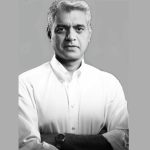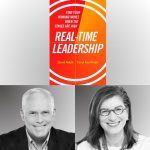Podcast Themes
Multiple perspectives on a topic that you are curious about!
Neeraj speaks about how he has gone about bringing in a delay function and systematically trained his mind to respond and not react in the heat of the moment.
Ricardo speaks about tuning into the spiritual elements within us. He says that when you are able to connect from that place and you can speak from your truth, then you start to become coherent and there starts to become coherence between your head, your heart, and yourself, and your essence.
Ricardo speaks about the 7 levels of energy we could all tap into (physical, emotional and spiritual) for us to access the “power plant” inside us that has unlimited energy.

Jen shares her perspectives around how we can try different conflict breaking paths for us to get out of the loop. She specifically refers to what President Carter did to reframe the conversations in Camp David where his talks with the then President of Egypt (Anwar Sadat) and the then Prime Minister of Israel (Menachem Begin).

Jen speaks about how we should practice pausing in the moment (reactive) and otherwise (proactive) for us to be able to choose responding instead of reacting at various points in time

We often use phrases without often questioning where they come from or what the deeper meaning behind those might be. Jen here shares her perspective around the phrase “taking a walk” and how it could have an impact on how we see a situation.

Distraction is all around us. Our screens are becoming smarter and our attention spans shorter. Engulfed with this tsunami of data in a world that worships multitasking, how does one develop mindfulness? Raghu shares some invaluable tips practiced by corporate leaders. You will be amazed to hear how simple tweaks (no need for any props! Just your time) can improve your mental well being.

Carol and David speak about how we can adopt multiple approaches to a situation. They borrow from the notion of fight, flight, fright or befriend and talk about the different approaches leaders could take to a situation – Lean in, Lean back, Don’t lean at all and Lean with.

Carol and David speak about 3 different dimensions of Mindfulness that leaders need in every context. They suggest that we are attuned to what is going on around us, inside us, and with others, and respond in an agile and an appropriate manner.

Carol and David speak about Validating the vantage point that a leader has. They speak about the various elements of a vantage point – resolution, level of detail , biases, near term vs long term and more.

Carol and David speak about their M.O.V.E framework; M – Mindful, O – Options Generating, V – Validating the Vantage Point, E – Engage and effect change. The key, they say, borrowing from Viktor Frankl, is to create the space between stimulus and response.

Stephen speaks about how we can lead from a paradigm of ‘Trust and Inspire’ but choose to go ‘Command and Control’ in the moment depending on the context in front of us. He goes on to speak about how the people around us would experience the same action very differently depending on the paradigm we